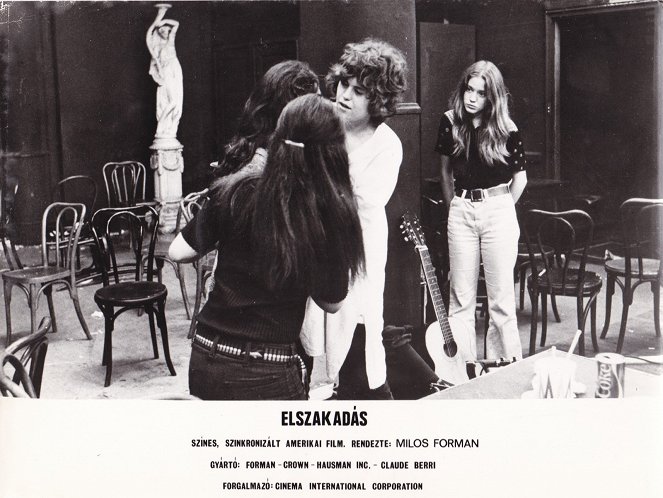Director:
Miloš FormanCámara:
Miroslav OndříčekReparto:
Lynn Carlin, Buck Henry, Georgia Engel, Tony Harvey, Audra Lindley, Paul Benedict, Vincent Schiavelli, Tina Turner, Philip Bruns, Allen Garfield, Kathy Bates (más)Sinopsis(1)
Unable to deal with her parents, Jeannie Tyne runs away from home. Larry and Lyne Tyne search for her, and in the process meet other people whose children ran away. With their children gone, the parents are now free to rediscover/enjoy life. (texto oficial de la distribuidora)
Reseñas (2)
The socio-cultural boom that hit America in the 1960s never particularly appealed to me, so the only film that I think fit best into that era was Forrest Gump. When I saw Miloš Forman's Hair earlier, the only thing that attracted me to it was its form. But you also can't say that about Taking Off. For me, it became just a one-and-a-half-hour-long narrative about family conflicts, running away from home, parental narrow-mindedness, and exemplary marijuana smoking. Throughout the entire film, I was just watching something with an apathetic expression that didn't interest me at all and was boring overall. I'm surprised that I didn't turn it off. To fully appreciate the film, perhaps a greater understanding of certain "cultural values" and "social rules" is needed. But no matter how hard I try, I can't find that understanding. Maybe I should grow up.
()
Milos Forman moved across Western Europe to the United States and did there what he did best in Czechoslovakia. He filmed people. He first studied them and then captured precisely the right moments that will look good on the screen and make you think. Although the scene with a joint is probably the most memorable, there are many other memorable scenes that examine the American society of that time.
()

